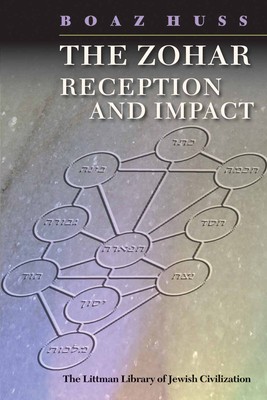
- We will send in 10–14 business days.
- Author: Boaz Huss
- Publisher: Littman Library of Jewish Civilization in Association with Liverpool University Press
- ISBN-10: 1904113966
- ISBN-13: 9781904113966
- Format: 15.8 x 23.6 x 3.8 cm, kieti viršeliai
- Language: English
- SAVE -10% with code: EXTRA
Reviews
Description
National Jewish Book Awards Finalist for the Nahum N. Sarna Memorial Award for Scholarship, 2016.
The Zohar is one of the most sacred, authoritative, and influential books in Jewish culture. Many scholarly works have been dedicated to its ideas, its literary style, and the question of its authorship. This book focuses on other issues: it examines the various ways in which the Zohar has been received by its readers and the impact it has had on Jewish culture, including the fluctuations in its status and value and the different cultural practices linked to these changes. This dynamic and multi-layered history throws important new light on many aspects of Jewish cultural history over the last seven centuries. Boaz Huss has broken new ground with this study, which examines the reception and canonization of the Zohar as well as its criticism and rejection from its inception to the present day. His underlying assumption is that the different values attributed to the Zohar are not inherent qualities of the zoharic texts, but rather represent the way it has been perceived by its readers indifferent cultural contexts. He therefore considers the attribution of different qualities to the Zohar through time, and the people who were engaged in attributing such qualities and making innovations in cultural practices and rituals. For each historical period from the beginning of Zohar reception to the present, Huss considers the social conditions that stimulated the veneration of the Zohar as well as the factors that contributed to its rejection, alongside the cultural functions and consequences of each approach. Because the multiple modes of the reception of the Zohar have had a decisive influence on the history of Jewish culture, this highly innovative and wide-ranging approach to Zohar scholarship will have important repercussions for many areas of Jewish studies.
EXTRA 10 % discount with code: EXTRA
The promotion ends in 22d.22:03:01
The discount code is valid when purchasing from 10 €. Discounts do not stack.
- Author: Boaz Huss
- Publisher: Littman Library of Jewish Civilization in Association with Liverpool University Press
- ISBN-10: 1904113966
- ISBN-13: 9781904113966
- Format: 15.8 x 23.6 x 3.8 cm, kieti viršeliai
- Language: English English
National Jewish Book Awards Finalist for the Nahum N. Sarna Memorial Award for Scholarship, 2016.
The Zohar is one of the most sacred, authoritative, and influential books in Jewish culture. Many scholarly works have been dedicated to its ideas, its literary style, and the question of its authorship. This book focuses on other issues: it examines the various ways in which the Zohar has been received by its readers and the impact it has had on Jewish culture, including the fluctuations in its status and value and the different cultural practices linked to these changes. This dynamic and multi-layered history throws important new light on many aspects of Jewish cultural history over the last seven centuries. Boaz Huss has broken new ground with this study, which examines the reception and canonization of the Zohar as well as its criticism and rejection from its inception to the present day. His underlying assumption is that the different values attributed to the Zohar are not inherent qualities of the zoharic texts, but rather represent the way it has been perceived by its readers indifferent cultural contexts. He therefore considers the attribution of different qualities to the Zohar through time, and the people who were engaged in attributing such qualities and making innovations in cultural practices and rituals. For each historical period from the beginning of Zohar reception to the present, Huss considers the social conditions that stimulated the veneration of the Zohar as well as the factors that contributed to its rejection, alongside the cultural functions and consequences of each approach. Because the multiple modes of the reception of the Zohar have had a decisive influence on the history of Jewish culture, this highly innovative and wide-ranging approach to Zohar scholarship will have important repercussions for many areas of Jewish studies.


Reviews